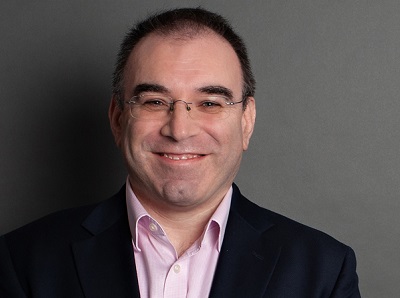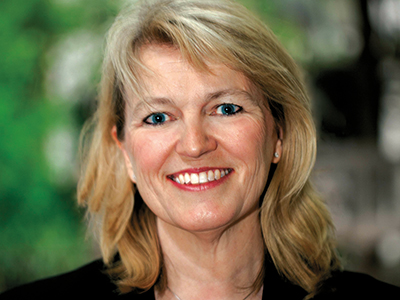Bird & Bird and Gilead invalidate two NuCana antiviral drug patents
In a trial concerning validity, US biopharmaceutical company Gilead has prevailed after the UK High Court revoked two NuCana patents. Parallel proceedings are ongoing in Germany and at the European Patent Office, where the Technical Board of Appeal has also recently revoked one of the patents at issue.
12 April 2023 by Amy Sandys
At the UK High Court, presiding judge Richard Meade has found two NuCana patents invalid for added matter, and for a lack of industrial applicability and plausibility. EP (UK) 2 955 190 B1 and EP (UK) 3 904 365 B1 are from the same family and are very similar, despite EP 365’s claims being somewhat narrower. The judgment marks a win for Gilead, especially coupled with a recent EPO decision also invalidating EP 190.
NuCana had counterclaimed for infringement, which the judgment notes would have been upheld, had the court found the patents valid. Although EP 190 originally covers a drug substance for treating cancer, NuCana does not use the patent for HCV treatment, nor does it market any pharmaceuticals in the area of cancer therapy.
However, the patents cover sofosbuvir, which is a central ingredient in medication used to treat hepatitis C. As such, Gilead markets several drugs to cover the latter broader indication, including its anti-viral Sovaldi, Harvoni, Vosevi and Epclusa products.
Gilead sees success
In the most recent UK proceedings, which began in February 2021, the court invalidated both patents. NuCana had applied to amend some claims covered by EP 190, defined by the so-called Markush formula. This formula covers central ingredient sofosbuvir. However, Gilead attacked the patents on several grounds, including added matter, claiming that the original application does not ‘clearly and unambiguously’ disclose the Markush definitions in the patent claims.
The company also argued for invalidity based on industrial application, and lack of plausibility, including insufficiency and obviousness over the ‘Shepard’ prior art (US 2003/0109697). It also argued that NuCana’s proposed amendments to EP 190 were not allowable.
The EPO only granted EP 365 in September 2022, meaning it is currently still in the opposition period. Regarding EP 190, the EPO’s Technical Board of Appeal heard an opposition case just two days after the High Court hearing. The EPO also revoked the patent on the basis of inventive step and added matter.
Judge considers plausibility
Furthermore, the judgment references the then-pending G 2/21 EPO decision on plausibility. On 24 March, the EPO’s Enlarged Board of Appeal confirmed its established case law requiring that, in order for the examiners to account for data submitted after filing a patent, it must be plausible from the application as filed, in combination with common general knowledge, that the technical effect was already achieved at the date on which the patent was filed.
Given that the EPO had not yet released its decision prior to the Gilead vs. NuCana judgment, Meade acknowledged he was bound by previous national case law stemming from Warner-Lambert vs. Actavis (case ID: [2018] UKSC 56]. However, the judge did reference the possibility that the pending EPO G 2/21 decision could impact national case law while acknowledging its significance for future plausibility cases.
EPO and Germany weigh in
In 2021, Gilead had challenged EP 190 before the EPO Opposition Division, although it later rejected Gilead’s arguments to uphold the patent in amended form.

Patrick Kelleher
While EP 190 was in opposition, Gilead commenced revocation proceedings in the UK. NuCana also sued Gilead for infringement at the Regional Court Düsseldorf.
In July 2022, the court confirmed that Gilead infringed EP 190, while also rejecting Gilead’s requests for a stay pending the EPO appeal and the action regarding the request for a compulsory licence (case ID: 4c O 18/21). Gilead had filed these requests a few weeks before the hearing in Düsseldorf.
In validity proceedings, the Regional Court Düsseldorf endorsed the Opposition Division’s decision to uphold EP 190. Interestingly, Gilead also put forth a disproportionality defence, which the court rejected in its entirety, resulting in an injunction.
According to JUVE Patent sources, it was one of the first cases in Germany to thoroughly examine the new disproportionality defence, as laid out under § 139 I clause 3 of the German Patent Act. However, given that the EPO has revoked EP 190, proceedings in Germany concerning the patent will come to an end.
Market leaders, head-to-head
In UK proceedings, the London office of international firm Bird & Bird acts for Gilead, with partners Patrick Kelleher and Jennifer Jones leading the team. The representation extends cross-border, with the firm also appearing for the global pharmaceutical company. Here, Oliver Jan Jüngst and Michael Alt lead the team.

Penny Gilbert
European patent attorney firm J A Kemp led EPO opposition proceedings for Gilead, with partner Chris Milton taking charge.
London-based IP boutique Powell Gilbert represents NuCana, led by partner Penny Gilbert. She has an excellent market reputation for pharmaceutical cases. In Germany, mixed IP firm Hoffmann Eitle appears for the company, with partners Niels Hölder and Thorsten Bausch taking the lead.
NuCana is a relatively new client for the German firm, this being the first instruction for its partners. The firm’s patent attorneys also led proceedings for NuCana in the EPO invalidity proceedings.
For Gilead
8 New Square (London): Michael Tappin, Tom Moody-Stuart, James Whyte
Bird & Bird (London): Patrick Kelleher, Jennifer Jones (partners); associates: Henry Elliott, Ning-Ning Li, Patrick Brown, Josh Price
For NuCana
11 South Square (London): Piers Acland
Three New Square (London): Tom Mitcheson
One Essex Court (London): Andrew Lomas
Powell Gilbert (London): Penny Gilbert, Joel Coles, Bethan Hopewell (all partners); associate: Daniel Down
UK High Court of England and Wales, London
Richard Meade (presiding judge)